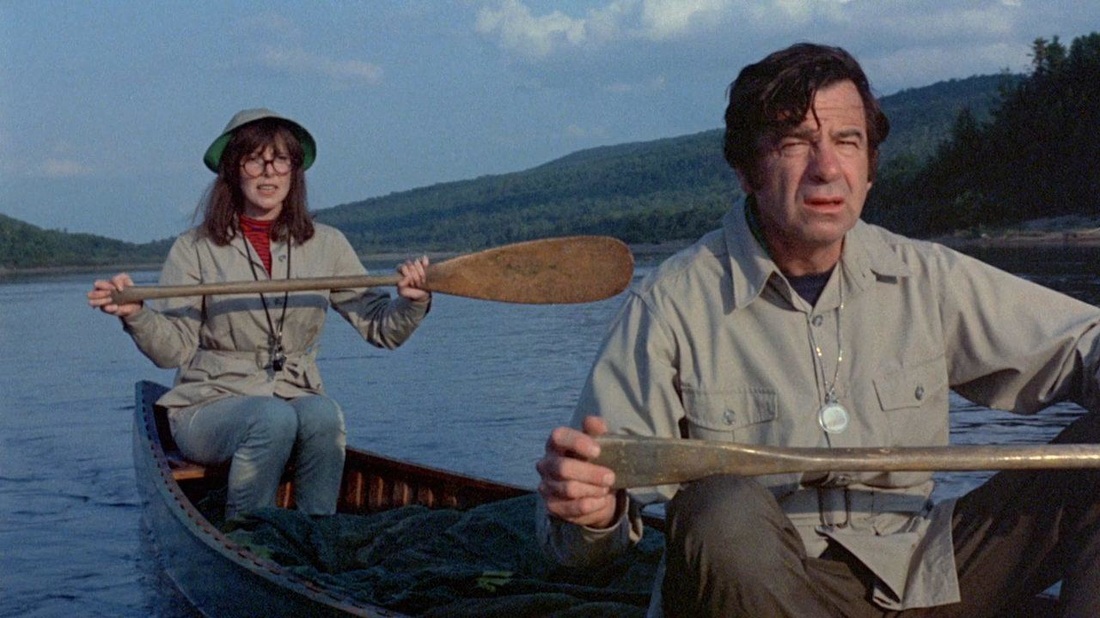|
This one is straight up rated "G". Although, my wife caught something dirty in the background. This is 1971 "G". It means nothing.
I'm going to pull a card I haven't played since college. I'm ashamed because I don't like when my students say this. "I don't get it." I'm going to back pedal right now. It's not going to let me off the hook, but contextually there's something going on here. I had never heard of this movie before I found it in a book. The 501 Must See Movies Before You Die book had A New Leaf listed as one of its movies. I know the very nature of a book ranking something that is very based on taste is inherently flawed. Still, the other movies seemed to be some standards and, as a man obsessed with cultural literacy, I felt like I should see all of these movies. Between never having heard of it and watching it, I have no idea why this movie is in this book. It isn't the worst movie ever. But it falls into a category that is perhaps more dangerous than any vitriol I can throw at it. It is remarkably forgetable. But I must be in the minority. After reading up on the movie both before and after watching the movie, I know of its cult status and history of being cut. This movie really falls into the same category as The Magnificent Ambersons as existing in only an extremely sabotaged form. The studio cut this movie down from an apparently long and epic comedy. But I don't think the movie even works that well at its core. Perhaps the longer version is better, but I don't really get that vibe from what I saw. I honestly couldn't wait for it to be over. The movie comments on the reality of love v. greed. At least it does in its final form, so I'm going with that. Perhaps the message is a bit Hallmarky, but there is validity in making both leading actors intentionally unattractive. This sounds like I'm just being catty, but there is value in this. I know it was the '70s and that there was a certain aesthetic going around, but they really tried making Elaine May awkward looking. (She tried making herself awkward looking. She was the director.) This is both the most sappy and least sappy movie possible. The double-meaning title is the actual theme of the film, but it takes a perhaps more honest approach to change than more heavy handed romantic comedies. Matthau's con causes him to make small changes constantly. Perhaps a comment on the value of works v. intention is being stated here. He never outright changes his perspective on his con until the absolute end, and even then it is begrudgingly. He finds no value in sentimentality, which in many ways is refreshing to see. His sacrifice, as opposed to other films, has already been completed without his knowledge. It is his mere acceptance that he has changed that gives it value. The movie almost seems reactionary to the appearance of Woody Allen on the scene. Take the Money and Run had come out a few years before. Bananas would come out the same year. In many ways, A New Leaf seems like a cousin in terms of style. But the execution is often weak. The wit doesn't really have the same defiance of expectation. The only times the jokes really land is when Walter Matthau is allowed to be himself instead of Woody Allen. Both have that level of disinterested snark, but there are worlds between their deliveries. There's something going on here, but I don't know if any of it really works.
0 Comments
Leave a Reply. |
Film is great. It can challenge us. It can entertain us. It can puzzle us. It can awaken us.
AuthorMr. H has watched an upsetting amount of movies. They bring him a level of joy that few things have achieved. Archives
July 2024
Categories |

 RSS Feed
RSS Feed